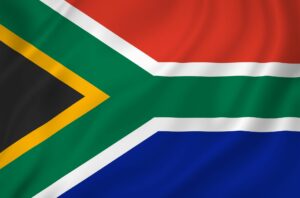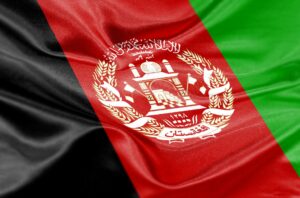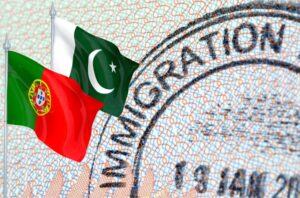Navigating the cost of living in Grenada presents potential residents and expatriates with a vibrant tapestry of choices and considerations. In 2024, the island’s living expenses continue to reflect its eclectic mix of local and imported goods, alongside the costs associated with its charming housing market and diverse lifestyle offerings.
Whether you’re pondering the merits of renting a seaside apartment, investing in a slice of tropical paradise, or simply planning your daily expenses, Grenada offers a unique blend of affordability and luxury. This guide provides a thorough overview of the financial aspects you can expect in Grenada, from the nuances of real estate to the details of daily groceries, ensuring that you can make informed decisions about your Caribbean life.
Housing Costs in Grenada
Renting vs. Buying Property
When considering a move to Grenada, one of the first things you’ll weigh up is whether to rent or buy property. Renting offers flexibility and is a big part of the cost of living, with a range of options available to fit different budgets. For example, you might find a one-bedroom apartment in the city center for about $641 per month. A more spacious three-bedroom apartment could set you back around $1,140.
The prices can be more affordable if you’d prefer to live outside the city center. One-bedroom and three-bedroom apartments average around $395 and $638 per month, respectively.
On the flip side, buying property in Grenada is tempting for those looking to settle down or invest. The real estate market is varied, offering everything from historic colonial homes to modern luxury villas. Prices for purchasing property can vary widely, starting as low as $160,000 to more than $7,000,000.
If you’re a foreign national looking to buy property, you’ll need to think about the Alien Landholding License purchase, which will cost you 10% of the property’s value. Plus, the Grenada Citizenship by Investment Program lets individuals get a Grenadian passport through property investment, which might be an attractive option if you’re planning to establish a more permanent presence on the island.
Average Price of Homes and Apartments
The average price of homes and apartments in Grenada varies greatly depending on factors like location, property type, and amenities. The market caters to a range of tastes and budgets. You can find a suitable home whether you’re after a modest bungalow or a swanky villa.
While the cost of living in Grenada is generally more affordable than in many Western countries, real estate prices cover a broad spectrum that caters to both modest and luxury preferences.
Utilities and Additional Housing Expenses
Living in Grenada also means additional housing expenses, such as utilities. These can include electricity, water, and internet services. You can pay around $48 per month for internet access and about $0.20 per minute for prepaid mobile services.
These costs and taxes, while necessary, add to the overall affordability of living in Grenada. You’ll need to factor them into your monthly budget when planning a move or long-term stay on the island.
Popular Areas for Expats and Locals
Grenada has several popular areas that appeal to both expats and locals. St George’s, the island’s capital, along with the cities of Carriacou, Grand Anse, and Lance aux Epines, are some of the best places to live. These areas offer a blend of stunning scenery, community amenities, and access to services.
They’re great for those wanting to immerse themselves in the Grenadian lifestyle. The availability of international restaurants, markets with fresh local produce, and efficient transportation options contribute to these areas’ high quality of life. Plus, Grenada’s low crime rate enhances the appeal of living in these locations, providing residents with a sense of safety and security.

Daily Expenses in Grenada
Grocery and Food Prices
The price of groceries in Grenada can fluctuate, but certain items are commonly purchased. A gallon of milk costs approximately $10, while a loaf of fresh white bread is priced at $0.70. Rice and eggs are relatively inexpensive, with a pound of rice at $0.70 and a dozen eggs at EC$10.10. Bananas, tomatoes, and lettuce are frequently consumed, with bananas at $3.75 per pound, tomatoes at $2.10 per pound, and a head of lettuce at $1.30. For those who include meat in their diet, chicken filets and beef rounds are priced at $3.40 and $5.10 per pound, respectively.
Dining Out and Entertainment Costs
Grenada’s dining scene ranges from economical eateries to more sophisticated establishments. A casual restaurant meal may cost around $7.40, while a three-course dinner for two at a mid-range venue averages $80. Fast food enthusiasts can expect to pay about $8.70 for a combo meal. Beverage prices include $2.10 for a pint of domestic beer and $2.40 for an imported one. A cappuccino typically costs $3.55. For entertainment, a movie ticket for an international release is priced at $9, making such activities accessible for most budgets.
Transportation Expenses
Various transportation options are available, with a one-way ticket on local transport costing $1.10 and a monthly pass at $37.60. Taxi services start at $22.20, with an approximate fare of $15 per mile. The price of gasoline is $4.90 per gallon. Those considering purchasing a vehicle will find that a new Volkswagen Golf or Toyota Corolla can be quite expensive, with prices at $24,065 and $26,555, respectively.
Communication and Internet Charges
For communication, a mobile phone plan with calls and over 10GB of data is offered at $18.50 per month. A home internet package with 60 Mbps or more speeds and unlimited data is available for $48 monthly.
While some living expenses, such as housing, are significantly lower, the cost of certain goods and services, particularly imported items, can be higher due to transportation and importation costs. Effective management of daily expenses involves being mindful of consumption patterns and utilizing local products and services.

Healthcare and Education
Healthcare System Overview
The island’s healthcare infrastructure includes a network of thirty medical stations, six health centers, and eight hospitals. St George’s General Hospital is the primary healthcare facility, catering to various health needs. Patients may need to seek treatment off-island for complex medical conditions, underscoring the importance of including evacuation coverage in health insurance plans.
Average Costs of Medical Services
Healthcare expenses can fluctuate, with public facilities typically offering more economical services than private ones. Pharmaceuticals and medical supplies might be pricier due to importation expenses.
Insurance Options for Expats
Expatriates are advised to obtain health insurance that encompasses both local treatment and evacuation. A range of insurance plans is available, from basic to comprehensive, to suit different needs and financial capabilities.
Tuition Fees and Schooling Costs
Primary education is free and mandatory for children aged 6 to 14. Private education incurs fees, with private kindergarten averaging $196.99 estimated monthly costs and international primary school around $1,662.85 annually. St George’s University School of Medicine charges starting from $20,055 per term for higher education, with variations depending on the program.
Additional Living Expenses
Clothing and Apparel Spending
Clothing expenses in Grenada will vary based on personal style and shopping preferences. A pair of Levi’s 501 jeans may be priced at $55.50, and a summer dress from a popular retail chain could cost $60. Athletic individuals might find Nike running shoes for $54.40, while leather business shoes could be around $80.50. Opting for local brands or sale items can be more economical than purchasing imported fashion.
Fitness and Leisure Activities
For fitness enthusiasts, the monthly costs of a gym membership average $55 per month. Tennis players can expect to pay $11.50 for an hour of court time over the weekend.
Miscellaneous Costs to Consider
Other miscellaneous expenses include public transportation, with bus fares at $0.40 for each person on a one-way ticket.
Saving Strategies While Living in Grenada
Embracing local products can lead to savings, as they are often more affordable than imported goods. Choosing local food items and clothing can make a noticeable difference in your budget.

Living in Grenada
Population and Demographics
Grenada, a picturesque island in the West Indies, is home to about 126,575 people as of early 2024. The country’s population density is relatively low, with 371 individuals per square kilometer. Over 32% of the population resides in urban areas, indicating a trend towards city living.
The median age of Grenadians is 32 years, and life expectancy stands at 75.49 years. The infant mortality rate is 11.9 deaths per 1,000 live births, with an under-five mortality rate of 14.6 per 1,000.
The cultural tapestry of Grenada is rich and diverse. The majority of its people, 82.4%, are of African descent. This is complemented by those of mixed heritage and East Indian origins, making up 13.3% and 2.2% of the population, respectively.
The city center’s religious landscape is predominantly Christian, with Protestants and Roman Catholics forming the largest groups. The influence of French culture is still palpable, with French place names and surnames prevalent and the local dialect interwoven with the French lexicon, even though English is the official language.
Climate and Weather Patterns
Grenada enjoys a tropical climate with consistent warmth throughout the year. The average annual temperature hovers around 25°C, with minimal seasonal variation. The island experiences a dry season from January to May and a wet season from June to December.
Annual rainfall varies between 750 to 1400 mm. Over recent decades, there’s been a noticeable increase in temperatures, with the 2000s marking the hottest decade on record. Changes in rainfall patterns, particularly during the late wet season, have also been observed, indicating shifts in the island’s climate dynamics.
Cultural and Lifestyle Considerations
The cultural life in Grenada reflects its African and Carib Amerindian heritage, with a significant French influence. Storytelling remains a vital cultural practice, with folktales and legends being passed down through generations.
The island’s literary scene is burgeoning, with events like the Spice World Literary Festival celebrating local talent. Cuisine in Grenada is a testament to its cultural melting pot, with dishes such as Oil Down and Callaloo soup showcasing local flavors and ingredients.
The performing arts scene is vibrant, with music genres like Reggae, Jazz, Soca, and Calypso widely enjoyed. Sports, particularly cricket, play a central role in Grenadian society, and the nation has proudly participated in every Summer Olympics since 1984.
Traditionally, Grenadian society was patriarchal. Nowadays, many women are educated and employed, challenging historical gender roles. Family structures range from large, extended families in rural areas to smaller, nuclear families in more urban settings.
Access to higher education is limited, with university degrees often reserved for those who can afford them or those who secure scholarships. Socially, Grenadians are known for their hospitality and enjoy gathering with friends and family.
Grenada boasts a competitive tax regime, with no capital gains, inheritance, income, or wealth tax on worldwide income or assets.

Embracing Grenada’s Lifestyle
Grenada presents a compelling balance for those choosing to call it home, with its affordable housing, scenic beauty, and welcoming culture. While certain aspects of island living might require budget adjustments, especially for imported goods, the local markets offer a rich trove of cost-saving opportunities.
By blending wise financial choices with an embrace of the Grenadian way of life, expats and locals alike can craft a comfortable and fulfilling experience under the Caribbean sun. Daily expenses, from nourishing meals to leisure activities, can be tailored to fit varying budgets without compromising the vibrancy of island living.
Whether pristine beaches tempt you, the allure of island culture, or just a desire for a safe community, Grenada offers a lifestyle that’s as rich as it is accessible.
FAQ’s
How Much Money Do I Need to Live in Grenada?
Living in Grenada can vary in cost depending on lifestyle choices and location. On average, a monthly budget of around $1,200 to $1,700 is needed for a moderate lifestyle. This estimate includes the monthly rent amount, utilities, groceries, and general expenses. Still, it can fluctuate based on personal spending habits and accommodation choices.
How Much Does Rent Cost in Grenada?
Rent in Grenada varies widely based on location and property type. A one-bedroom apartment in the city center may cost around $400 to $600 per month, while outside the city center, it might be $300 to $500. Larger properties or those in more desirable locations will command higher prices.
What is the Average Salary in Grenada?
The average salary in Grenada typically ranges between $800 and $1,200 per month. However, this can vary greatly depending on the industry, job role, and individual qualifications. Some specialized or highly skilled positions may offer higher salaries.
What is the Average Price of a House in Grenada?
The average price of a house in Grenada varies, but as a general guide, it can range from $150,000 to $350,000. Prices depend on factors like location, size, condition, and proximity to amenities or coastal areas. Luxury homes or properties in prime locations can be significantly more expensive (upwards of 7 million).





